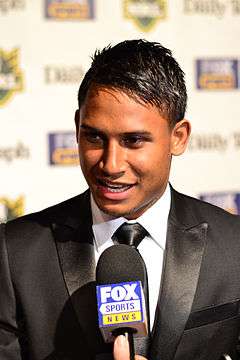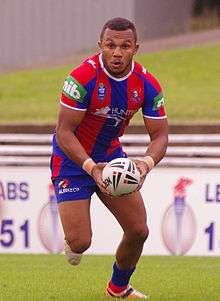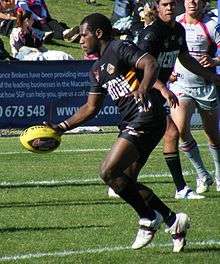Murri people
| |||||||||
| Regions with significant populations | |||||||||
|---|---|---|---|---|---|---|---|---|---|
| Queensland, North West New South Wales | |||||||||
| Languages | |||||||||
| English, Bundjalung, Darumbal, Djabugay, Dyirbal | |||||||||
| Related ethnic groups | |||||||||
| Koori People, Nunga, Nyoongar, Palawah, Wangai, Yamatji | |||||||||
The Murri are the Indigenous Australians of modern-day Queensland, North West New South Wales.[1] Collections of tribes and extended family groups throughout geographic regions of Australia have different names, such as the Yugarabul, the Jagera peoples from Coorparoo, Kwiambal peoples from Northern New South Wales and the Koori people of parts of New South Wales and Victoria. The term is their preferred term, expressing pride in their heritage and race.
History
Many Murri were forcibly removed from their land, and placed on missions with other tribes with whom their relations may not have been friendly. From 1900 until 1972, a substantial number of Murri children became part of the Stolen Generations.[2]
Along with all Australian Aboriginal people they were given suffrage in 1962 for federal elections, along with free access to Musgrave Park. They now own and operate the Murri radio network. Murri courts were established in 2002, but were closed by the Queensland Government in 2012.[3]
Murri language groups
- Badtjala
- Barunggam
- Bayali
- Birri Gubba
- Bundjalung
- Darumbal
- Djabugay
- Dyirbal
- Gangulu
- Gubbi Gubbi
- Gureng Gureng
- Guwinmal
- Jandai
- Jirrbal
- Mamu
- Waka Waka
- Wali Wali
- Yuggera
- Turrbul
Sport and Culture
The Murri people hold the annual Murri Rugby League Carnival every year since 2011 with the support of the Arthur Beetson Foundation and the Deadly choice. Through the Murri Rugby League Carnival they select a players to represent in the Queensland Murri Rugby League team to participate against touring teams of Australia or to tours other country's.
Other names used by Australian Aboriginal people
There are a number of other names from Australian Aboriginal languages commonly used to identify groups based on geography:
- Koori/Koorie in New South Wales and Victoria
- Nyoongar in southern Western Australia and South Australia
- Nunga in southern South Australia
- Anangu in northern South Australia, and neighbouring parts of Western Australia and Northern Territory
- Bining in Western Arnhem Land, Northern Territory
- Yolngu in Eastern Arnhem Land, Northern Territory
- Palawah (or Pallawah) in Tasmania.
References
- ↑ "How to name Aboriginal people?". Creative Spirit. Retrieved 2 December 2015.
- ↑ Bringing them Home - 5 Queensland
- ↑ Qld Government announces closure of Murri courts program for Indigenous offenders

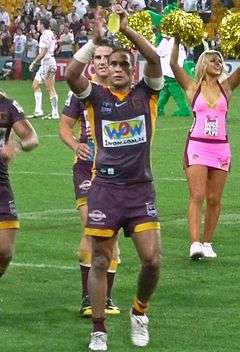

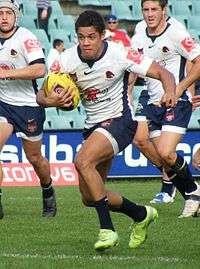
.jpg)
